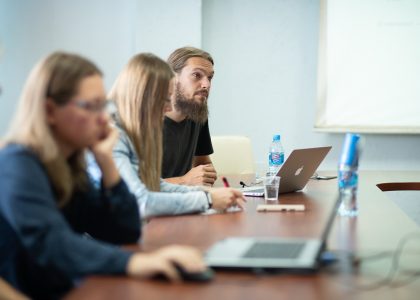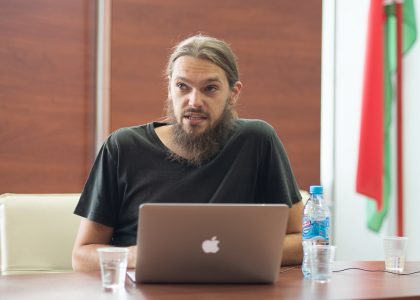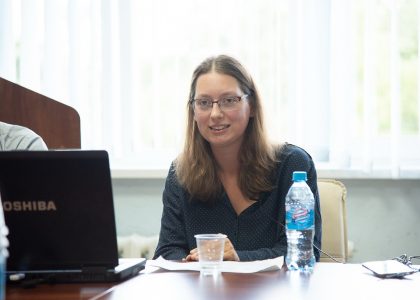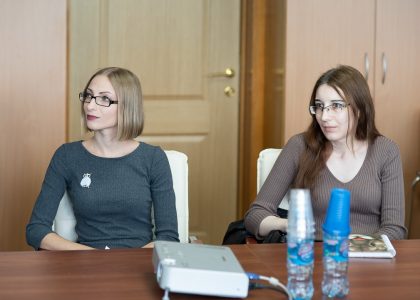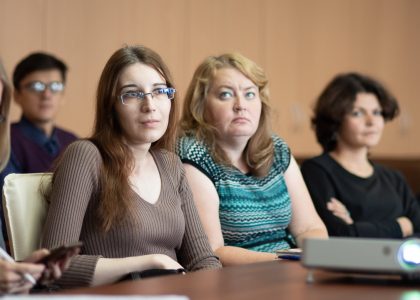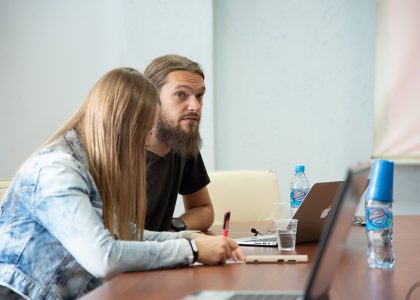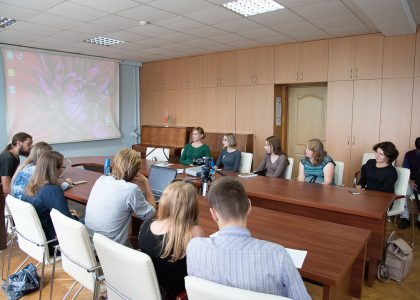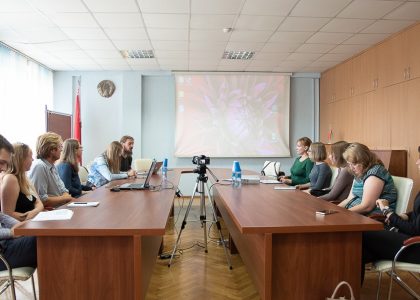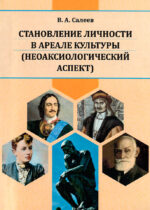Meeting with researchers from the University of Göttingen in the Intellectual Club “Women in Philosophy”
The meeting of participants and guests of the Intellectual club “Women in Philosophy” with researchers from the University of Göttingen (Germany) was held on August 22, 2018. Doctoral students Adolph van der Walt and Elena Romashko presented the results of their research.
Adolph van der Walt presented a report in English “Womanism and Contextual Theology in South Africa”. In his speech, he clarified the relationship between American and European feminism and African womanism, how the ideas of womanism manifest themselves through conceptual interpretations of biblical texts in the Republic of South Africa. Adolph van der Walt emphasized that the term was introduced into social theory to overcome the limitations of feminism of the second wave, associated with the ignoring of cultural and value differences in the life of European and African women. The need to take into account the regional specifics and real needs and demands of women of different cultures when promoting ideas of gender equality raised new questions and demanded the search for non-trivial methodological means of their comprehension.
E. Romashko’s report “Post-Chernobyl Material Culture: Image of Women, Who Overcome the Consequences of Atomic Catastrophe, in Religious Art” aroused great interest among the audience. She studies material artifacts in the context of atomic culture. On this empirical base, E. Romashko made conclusions about how the role of women in overcoming the consequences of the Chernobyl explosion is displayed in icons and paintings. The author noted that images of both religious and secular nature seldom give women the place of direct participants of overcoming the consequences of the Chernobyl disaster. As a rule, their role is passive; women are portrayed as victims of the tragedy. On the contrary, men are represented as active participants – survivors. Despite the fact that women are rarely recognized as directly involved in the liquidation of the consequences of the disaster, their role cannot be underestimated: among women, there were many doctors, nurses and other staff, who contributed to the fight against the consequences of the Chernobyl explosion. Nevertheless, attempts to include them in the ranks of active participants in this process are met with resistance. For example, on the icons devoted to the Chernobyl accident, they are “corrected” to the images of women that correspond to the canon and tradition.
Participants and guests of the event positively assessed the novelty of the problems of the reports for the Belarusian research space. The meeting ended with a discussion, where there were expressed different points of view and opinions on the role of women in overcoming the consequences of the Chernobyl catastrophe, relevance and ways of depicting female figures on the Chernobyl icons.
Gallery
